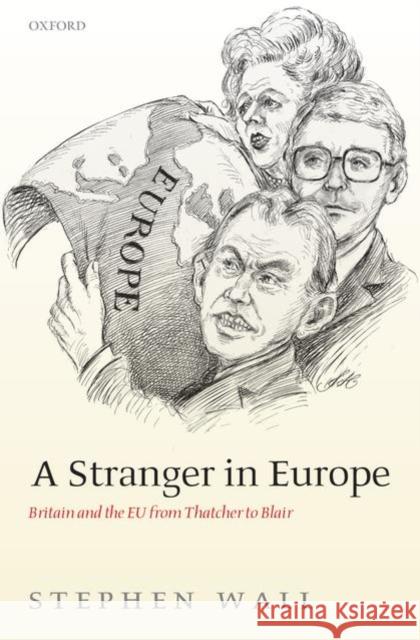A Stranger in Europe: Britain and the EU from Thatcher to Blair » książka
A Stranger in Europe: Britain and the EU from Thatcher to Blair
ISBN-13: 9780199284559 / Angielski / Twarda / 2008 / 240 str.
For over twenty years Sir Stephen Wall was at the heart of Whitehall, working for a succession of British leaders as they shaped Britain's policy towards the European Union. He was there behind the scenes when Margaret Thatcher took on the rest of Europe to 'get her money back'. He was with John Major at Maastricht where the single European currency was born. He was with Tony Blair as a negotiator of the EU's Amsterdam, Nice and Constitutional Treaties. As a senior official in London, as Britain's ambassador to the European Union and as Tony Blair's senior official adviser on Europe he saw Prime Ministers and Foreign Secretaries define, defend and promote Britain's interests in Europe. Drawing on that experience, Stephen Wall traces a British journey from 1982 to the present as successive British governments have wrestled with their relationship with their fellow EU partners, with the European Commission and the European Parliament.
A Stranger in Europe goes behind the scenes as Margaret Thatcher and her successors have sought to reconcile Britain's national and European interests. Drawing on the official documents of the period, he gives a unique insight into how Britain's leaders have balanced objective assessment of Britain's wishes; political, press and public pressures; their own political instincts and the aims, interests and personalities of their fellow European leaders. We see Britain's Prime Ministers in intimate discussion with other EU leaders. We experience how Britain's top politicians motivated the best civil servants of their day and how those civil servants, in turn, sought to turn political instructions into negotiating successes. Above all, we see people at the top of their game trying to promote the British national interest and be good Europeans at the same time.
Stephen Wall analyses both Britain's successes and our failures and shows how, despite the differences of declared aim, and huge differences of personality, Britain's political leaders have in practice followed very similar paths. He concludes that Britain has been an awkward partner, often at odds with her partners: a stranger in Europe. But with dogged determination and seriousness of purpose Britain's leaders have nonetheless done much to shape and reform the modern Europe in which we live today.











